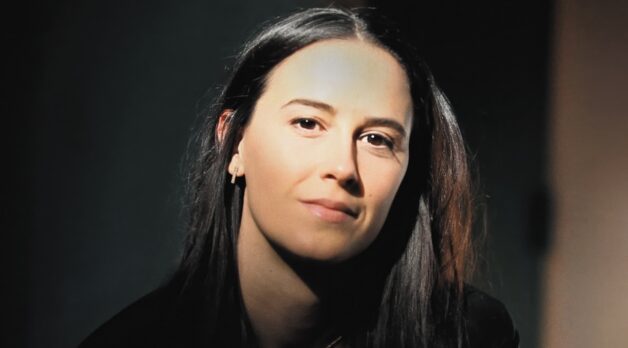Caitlyn Greene
 Caitlyn Greene
Caitlyn Greene

Born and raised outside of Raleigh, North Carolina, Caitlyn Greene moved to New York City the summer after graduating from UNC-Chapel Hill with a degree in photojournalism. Her first job was as an assistant editor on Tomorrow We Disappear, “a totally indie” feature documentary about an artist colony in New Delhi facing eviction. Once she realized that editing made her “very employable,” she began consistently working on nonfiction shorts and branded content. It’s been a professional path that, over a decade, has led to her own debut feature, the environmental-themed documentary The River, currently in “early to mid-production.”
Greene’s first major career breakthrough occurred when she was recruited as a co-editor on director Andrew Jarecki’s true crime series The Jinx. She had cold-emailed editor and co-creator Zac Stuart-Pontier, whose work she admired. He left her initial email unanswered, so she followed up. (“He was like, ‘OK, she’s persistent!’”) During their lunch meeting, he talked about his work on The Jinx, then being cut as a feature. It took a year for Stuart-Pontier to get back in touch to say that the project was now episodic, and they needed more editors. Hired on a year-long contract, Greene received an Emmy for Best Editing and an ACE Eddie Award for her work on the show, which itself amassed an Emmy for Best Documentary Series in 2015 and a Peabody in 2016. “It ended up having more reach than anything I had ever worked on,” reflects Greene.
For a while, she juggled her desire to direct alongside editing the work of others but found that dance “very taxing.” All things considered, she fared pretty well: In 2018, she helmed the short Dean Goes Surfing, about a teen with Down syndrome who joins a surf club, and edited the feature When Lambs Become Lions, about a small-time ivory dealer in Kenya. The former was highlighted as a Vimeo Staff Picks Best of the Year, while the latter earned an award for Best Editing in a Documentary Film at Tribeca.
After briefly considering graduate school, she decided to “hit pause” on her editing work and fully commit to her creative impulse. The Diamond, Greene’s resultant 2021 short about Crater of Diamonds State Park in Arkansas (where the public can mine for diamonds atop an ancient volcanic crater), was inspired by an article she read. “I was drawn to the symbology and the idea of an open-air confessional.” Indeed, Greene’s subjects dig for more than just precious stones, openly divulging their struggles to the camera. “I thought it was going to be a quirky roadside attraction piece,” she says, “But people were like, ‘I just want to be outside and think about this hard thing I’m going through in my life.’” The film world-premiered at the Camden International Film Festival, where it earned the Vimeo Staff Pick Award before being picked up by the New Yorker.
The inspiration for The River came in 2020, when Greene was quarantining with a friend who recommended she read John McPhee’s 1987 New Yorker essay “Atchafalaya.” She explains, “It’s about the Mississippi River wanting to change course and interventions by the Army Corps of Engineers to keep it in place. I had no idea that this was happening, or that it took so much to manage.” At the same time, her Louisiana-based maternal grandfather was suffering from dementia, which caused her to feel her “tie to him, and this place through him, fade.”
She began the project by doing extensive field research in southeast Louisiana and now, having begun production, has created a dramatic (and very well-edited) sizzle reel emphasizing both the human toll caused by coastline erosion and the civic conflicts around the $2.2 billion project’s impact on the local fishing industry. The River is produced by Sara Archambault and the Department of Motion Pictures and has received support from Catapult Film Fund, IDA, Jerome Foundation and Impact Partners, among others. “We are striving to make something that is both intimate and global, urgent and hopeful,” Greene explains. “Something that explores—through the bravery of people living it firsthand—what we do when the world around us changes.”
Speaking to what distinguishes her output as an editor-for-hire versus director, Greene notes that, “As an editor, I’ve worked on more things that were very plot-driven and tight,” while her shorts “have been more poetic and lyrical with less of a traditional narrative structure.” With The River, she finds herself “excited to bring both of those sensibilities together.”—Natalia Keogan/Image: Caitlyn Greene
